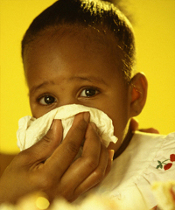Mononucleosis and Polio

Mononucleosis and polio are both viral infections that strike the young and can remain in the body without symptoms for decades. Mono, as it is called, is also called the kissing disease because it is transmitted by contact with saliva. This can occur through kissing, or eating and drinking from contaminated utensils or cups.
Polio was once called infantile paralysis because it struck the young with such devastating effects. The muscular paralysis caused by polio can last a lifetime. Even when victims have recovered, some who have had polio when young can develop muscle pain and weakness as much as 30 or 40 years later.
Like most viruses, treatment options of both mono and polio are limited. Doctors and therapists can treat the symptoms but must rely primarily on the body's defenses to defeat the virus. Even if it does defeat it, the virus remains in the body; for polio, the effects may be life-long.